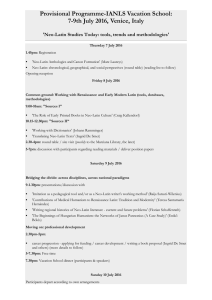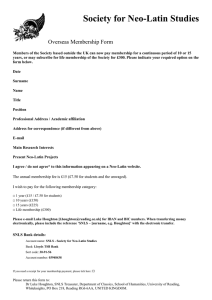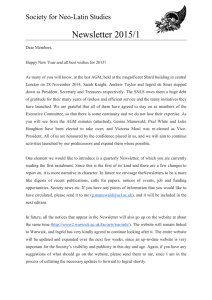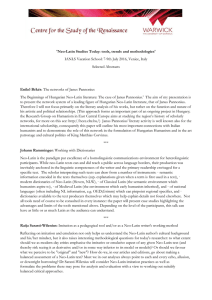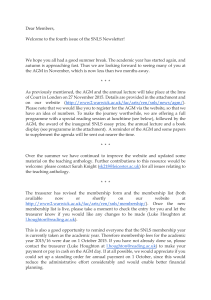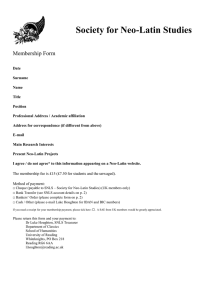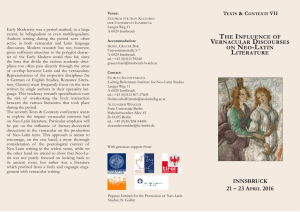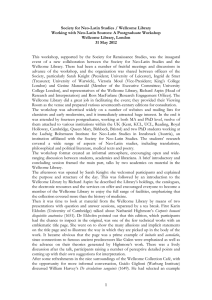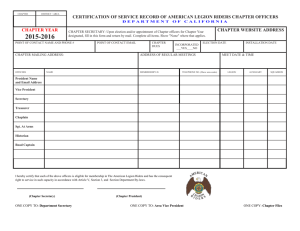Article 1
advertisement
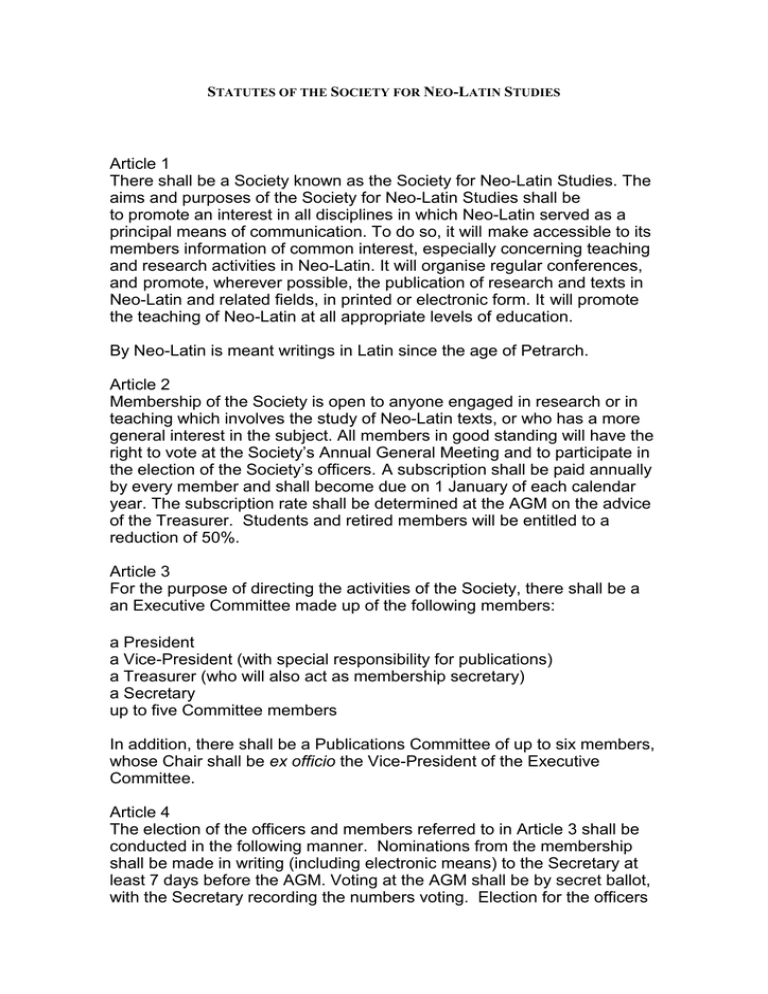
STATUTES OF THE SOCIETY FOR NEO-LATIN STUDIES Article 1 There shall be a Society known as the Society for Neo-Latin Studies. The aims and purposes of the Society for Neo-Latin Studies shall be to promote an interest in all disciplines in which Neo-Latin served as a principal means of communication. To do so, it will make accessible to its members information of common interest, especially concerning teaching and research activities in Neo-Latin. It will organise regular conferences, and promote, wherever possible, the publication of research and texts in Neo-Latin and related fields, in printed or electronic form. It will promote the teaching of Neo-Latin at all appropriate levels of education. By Neo-Latin is meant writings in Latin since the age of Petrarch. Article 2 Membership of the Society is open to anyone engaged in research or in teaching which involves the study of Neo-Latin texts, or who has a more general interest in the subject. All members in good standing will have the right to vote at the Society’s Annual General Meeting and to participate in the election of the Society’s officers. A subscription shall be paid annually by every member and shall become due on 1 January of each calendar year. The subscription rate shall be determined at the AGM on the advice of the Treasurer. Students and retired members will be entitled to a reduction of 50%. Article 3 For the purpose of directing the activities of the Society, there shall be a an Executive Committee made up of the following members: a President a Vice-President (with special responsibility for publications) a Treasurer (who will also act as membership secretary) a Secretary up to five Committee members In addition, there shall be a Publications Committee of up to six members, whose Chair shall be ex officio the Vice-President of the Executive Committee. Article 4 The election of the officers and members referred to in Article 3 shall be conducted in the following manner. Nominations from the membership shall be made in writing (including electronic means) to the Secretary at least 7 days before the AGM. Voting at the AGM shall be by secret ballot, with the Secretary recording the numbers voting. Election for the officers shall be by a simple majority. Vacancies for Committee members shall be filled by the candidates who receive the largest number of votes, each member being entitled to cast votes for up to the total number of vacancies. The Executive Committee shall have the power to co-opt as necessary members, who shall serve until the next AGM. The period of office for the officers and members of the Executive Committee shall be 1 year, but officers and members of the Executive Committee may stand for re-election. The composition of the Publications Committee shall be determined by the Executive Committee. Article 5 Proposed changes to the Statutes, which have been received by the Secretary in writing at least 14 days before the AGM, shall be put to the vote at the AGM, and accepted if approved by two thirds of those present. These statutes were approved unanimously on 8 April 2005 by: J. W. Binns Philip Ford John Gilmore Jacqueline Glomski Philip Hardie Adam Kay David Money Ann Moss Christina Neagu Howard Norland Douglas Paine Jan Papy Oliver Phillips Chris Rees Valery Rees Stephen Ryle Keith Sidwell Andrew Taylor Dirk van Miert Arnoud Visser Paul White
